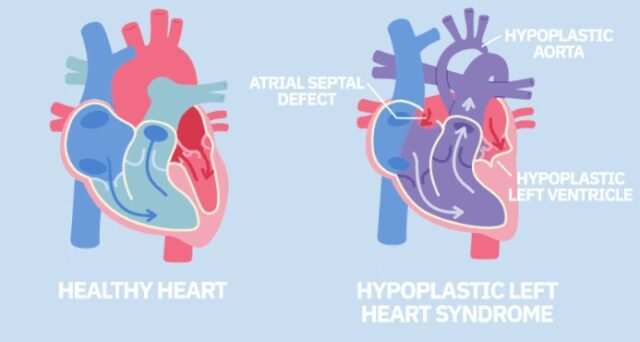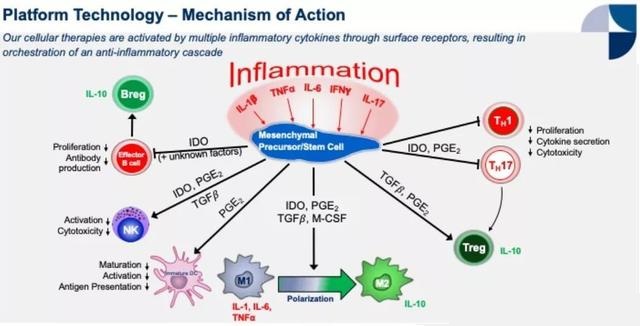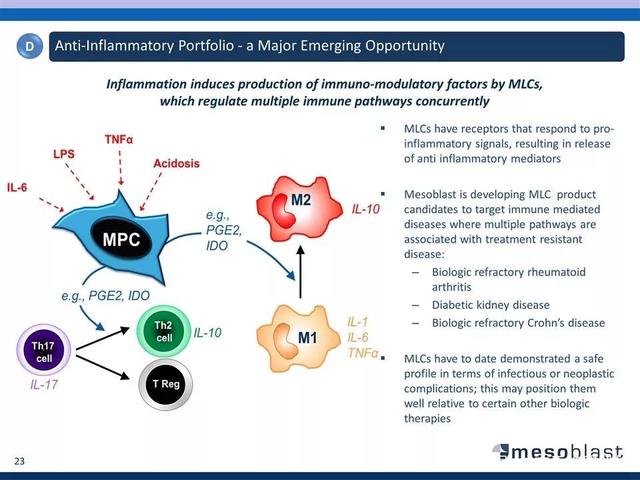Stem cell therapy can significantly reduce the risk of Cardiogenic death Heart Attack and Stroke
- Normal Liver Cells Found to Promote Cancer Metastasis to the Liver
- Nearly 80% Complete Remission: Breakthrough in ADC Anti-Tumor Treatment
- Vaccination Against Common Diseases May Prevent Dementia!
- New Alzheimer’s Disease (AD) Diagnosis and Staging Criteria
- Breakthrough in Alzheimer’s Disease: New Nasal Spray Halts Cognitive Decline by Targeting Toxic Protein
- Can the Tap Water at the Paris Olympics be Drunk Directly?
Stem cell therapy can significantly reduce the risk of Cardiogenic death Heart Attack and Stroke
- Should China be held legally responsible for the US’s $18 trillion COVID losses?
- CT Radiation Exposure Linked to Blood Cancer in Children and Adolescents
- FDA has mandated a top-level black box warning for all marketed CAR-T therapies
- Can people with high blood pressure eat peanuts?
- What is the difference between dopamine and dobutamine?
- How long can the patient live after heart stent surgery?
Stem cell therapy can significantly reduce the risk of Cardiogenic death Heart Attack and Stroke.
Studies have found that stem cell therapy can significantly reduce the risk of high-risk heart failure patients with diabetes and/or myocardial ischemia.
On December 5, 2021, Mesoblast announced that the latest analysis of the DREAM-HF randomized controlled phase 3 clinical trial of 537 subjects showed that mesenchymal stem cell therapy should be added to the best standard treatment.
Rexlemestrocel-L” can reduce the overall incidence of 3 major adverse cardiovascular events (MACE) in 385 patients with chronic heart failure and left ventricular low ejection fraction (HFrEF) with diabetes and/or myocardial ischemia by 37% .

Source: Document screenshot
The US FDA regards 3 major adverse cardiovascular events (MACE), including cardiogenic death, heart attack and stroke, as the recognized focus to assess cardiovascular disease risk.
Latest data: Stem cell therapy can significantly reduce the risk of high-risk heart failure patients with diabetes and/or myocardial ischemia
Diabetes is not only an important risk factor for the onset of heart failure, it also increases the mortality and morbidity of patients with heart failure.
Type 2 diabetes causes structural heart disease and heart failure through myocardial ischemia involving large and small blood vessels.
Importantly, it is known that inflammation is a key component of the pathophysiology of diabetes, and it accelerates large vessel atherosclerosis.
In patients with low left ventricular ejection fraction, uninhibited intracardiac inflammation can lead to progressive loss of myocardium, replacement of scar tissue and death.
Persistent inflammation in the blood circulation can also accelerate atherosclerosis, leading to plaque progression and instability, which can lead to plaque rupture and potential blockage of the large arteries.
The end result is a high incidence of heart attacks and strokes in patients with chronic left ventricular low ejection fraction.

Source: Document screenshot
Mesenchymal stem cells can promote the regeneration of vascular endothelial cells by secreting growth factors , play an important role in the maintenance, repair and regeneration of blood vessels, and can promote endogenous tissue repair and regulate immune responses.
Mesenchymal stem cell therapy is a kind of allogeneic mesenchymal precursor cells (MPCs) derived from the bone marrow of healthy volunteers.
It can regulate T cell proliferation and down-regulate the production of pro-inflammatory cytokines and interferons. T cell-mediated inflammation.

Source: Document screenshot
On December 5, Mesoblast announced that the latest analysis of the DREAM-HF randomized controlled phase 3 clinical trial of 537 subjects showed that: chronic heart failure with diabetes and/or myocardial ischemia and left ventricular hypoemission Patients with blood fraction (HFrEF) can benefit the most from mesenchymal stem cell therapy rexlemestrocel-L.
This additional analysis of the high-risk patient group shows:
During a median follow-up of 30 months, after receiving a single dose of mesenchymal stem cell therapy based on the best standard treatment, the three major adverse cardiovascular events of 537 patients with low left ventricular ejection fraction were reduced by 33% (P=0.02) , among which patients with diabetes and/or myocardial ischemia have the greatest clinical benefit (HR: 0.63, p=0.019).
In the 276 cases of the best standard treatment of left ventricular low ejection fraction control group, the risk of the 3 major adverse cardiovascular events in the 192 cases of diabetes and/or myocardial ischemia was 1.9 higher than that of the 84 cases without diabetes or myocardial ischemia. Times (p=0.02).
This proves that even after receiving the best standard treatment, patients with low left ventricular ejection fraction accompanied by diabetes and/or myocardial ischemia still have a high risk of three major adverse cardiovascular events.
Compared with control patients, mesenchymal stem cell therapy reduced the overall incidence of three major adverse cardiovascular events in 385 patients with diabetes and/or myocardial ischemia with low left ventricular ejection fraction by 37% (p=0.02) The overall incidence of 3 major adverse cardiovascular events in 212 patients with diabetes and/or myocardial ischemia with systemic inflammation (defined as high-sensitivity C-reactive protein, that is, the baseline level of hs-CRP increased> 2 mg/L) A reduction of 54% (p=0.003).
In summary, mesenchymal stem cell therapy can significantly reduce the ability of cardiogenic death, heart attack and stroke.
This reflects the unique mechanism of action of allogeneic stem cell therapy in reducing inflammation and improving the microvascular system: stem cells can reduce the inflammatory cytokines produced by immune cells and produce an improved local vascular network in the damaged heart, thereby preventing the death of cardiomyocytes and Replaced by scar tissue.

▲ Source of the anti-inflammatory properties of mesenchymal stem cell therapy: screenshots from the literature
Based on the positive results obtained, Mesoblast plans to formally submit to the FDA the latest update of the mesenchymal stem cell therapy Rexlemestrocel-L to reduce mortality and irreversible morbidity in patients with low left ventricular ejection fraction accompanied by diabetes and/or myocardial ischemia Data analysis to reach agreement on potential approval pathways.
Outlook
Stem cell technology has always been regarded as “regenerative medicine technology” and is known as the third medical revolution after drug treatment and surgical treatment .
It is a key development field in the frontier of international medicine in recent years, and it brings hope to the treatment of some serious and intractable diseases .
With the deepening of stem cell research and development and the expansion of transformation applications worldwide , more than ten stem cell products have been approved for the market worldwide, bringing clinical benefits to the majority of patients.
It is hoped that the positive research data this time can support the listing application of Rexlemestrocel-L and benefit more patients.
Stem cell therapy can significantly reduce the risk of Cardiogenic death Heart Attack and Stroke
(sourceinternet, reference only)
Disclaimer of medicaltrend.org
Important Note: The information provided is for informational purposes only and should not be considered as medical advice.



